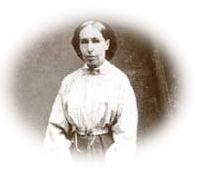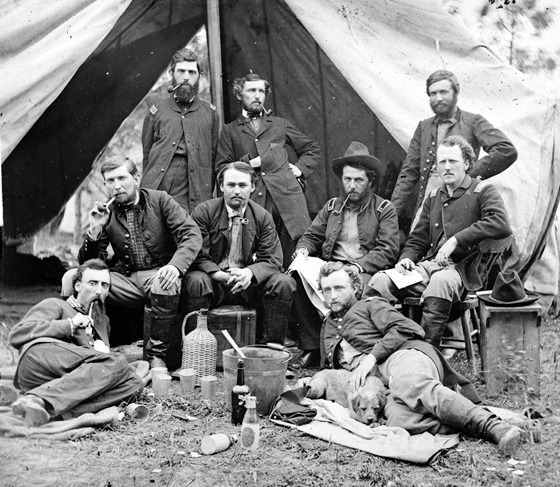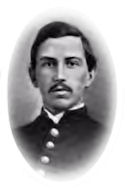White House, Va.,
May 20, 1862.
Dear Father:—
There are long rows of “quarters,” log huts with no windows but holes in the walls and only a mud floor. The slaves were mostly born on the plantation, and, though many had been sold south, but few had been brought on. One old “Uncle Tom,” over sixty years old, had worn his strength out in sight of the house—had never been five miles away. One man told me he was owned over on the State road six miles away. He married a woman on this plantation, had been married eight years and had six children. The only time he had ever been allowed to visit his wife was to come on Saturday night after dark and be back to his work in the field by daylight on Monday morning. He was a good looking, intelligent man and gave me much information about the modes of cultivation, the crops, etc., and about negro life in the system of slavery. He could hardly believe or realize that he and his family could never be slaves again. He said “if he was sartin of it, he would stay where he had always lived.” He could find “right smart to do,” and felt very confident he could support his family. There were all sorts of darkies there, stalwart field hands, and old wornout men, laughing, careless “Topsies” carrying buckets of water on their heads, strong-limbed boys, and little toddlers running round with nothing to cover their ebony but a nether garment that looked as though it had been in contact with their master’s character. They all appeared very healthy, except the very old men and women.
Well, if I don’t stop running on so I shall have no time to answer any questions. About that Zouave cap, it is dark blue, and, of course, it has no front, that’s Zouave style. The Duryea Zouaves wear a red cap, conical, with a white roll around it, and a very heavy, long tassel of yellow worsted, blue jacket (some like our three months’), red pants, very baggy, and yellow leggings. They are a dashing set of fellows.
I am very glad if the money I sent was of use. We expect another two months’ pay in Richmond.
I saw Conway Ayres at White House. His regiment was to be mustered out of service in a few days, but he said he should not go home till we got to Richmond.
We have lately got a suit of government uniforms and the Zouaves are played out.
General Porter is raised to the command of a corps and the division is now Morell’s division.
I hope you will reply as promptly as I have, and that our letters will be received a little more quickly hereafter.

 Headquarters 5th Provisional Corps,
Headquarters 5th Provisional Corps,






